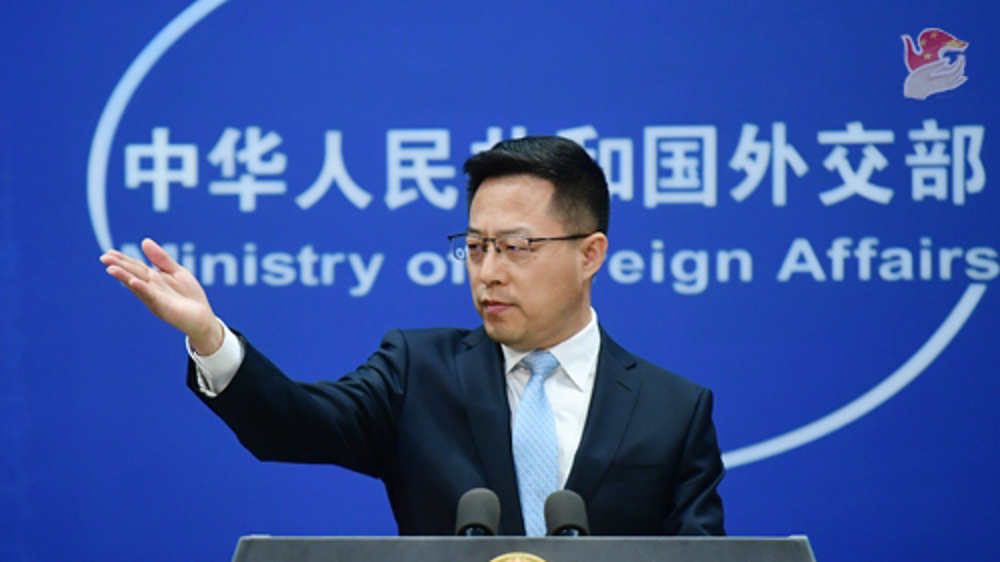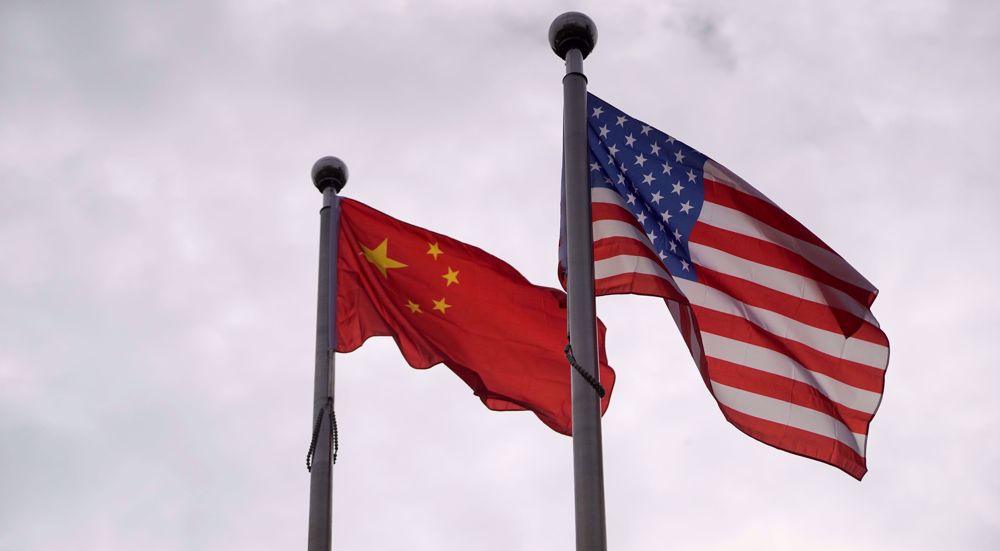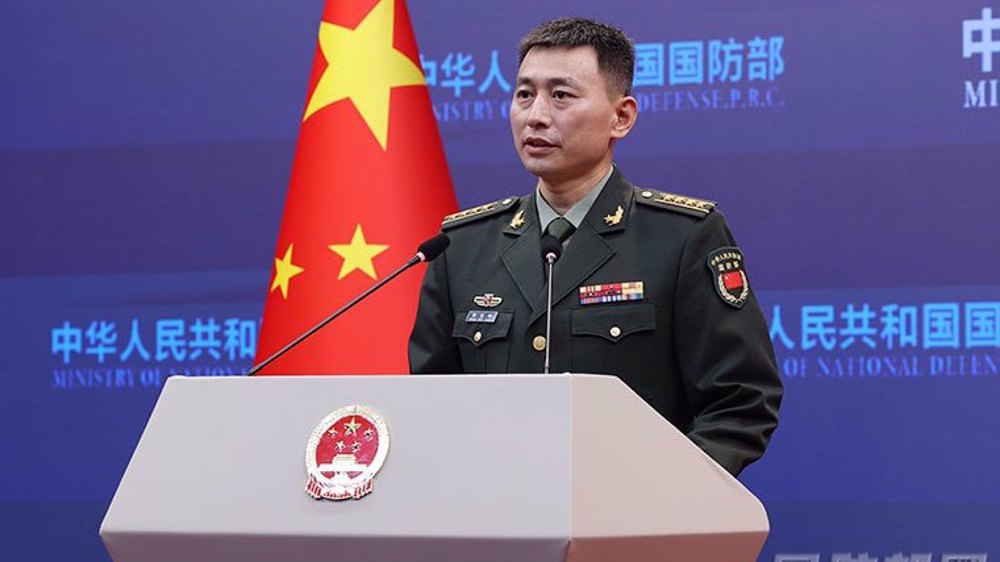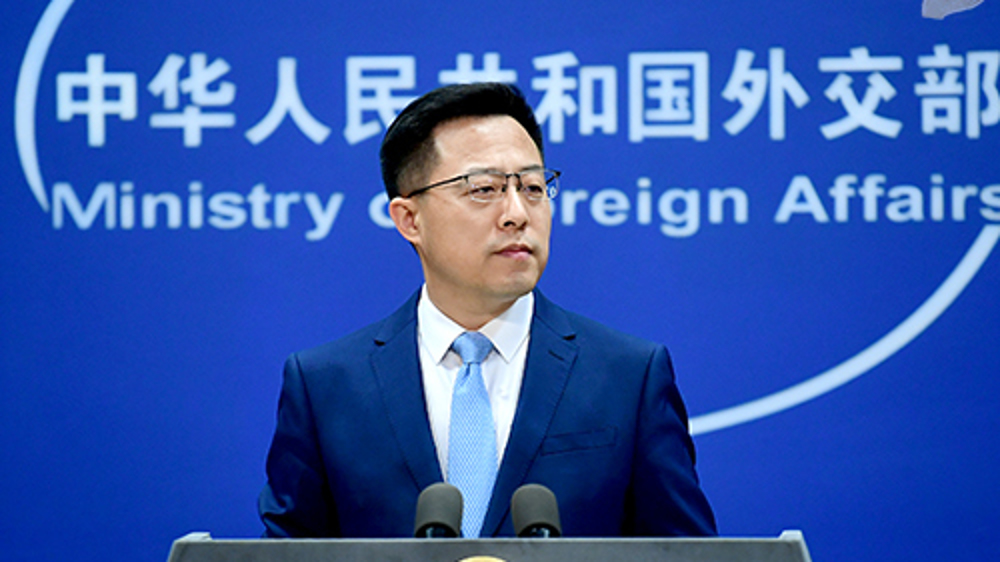China: ‘America Competes Act’ permeated with Cold War mentality, zero sum concept
China has urged the United States to abandon its "Cold War" and "zero-sum game" mentality, after the US House of Representatives passed a bill aimed at increasing American competitiveness with China and boosting US semiconductor manufacturing.
Chinese Foreign Ministry spokesman Zhao Lijian blasted the so-called America Competes Act at a regular press conference on Monday, saying the bill's content regarding China is full of "Cold-War, zero-sum game mentality and slanders the country's development path and domestic and foreign policies."
"The US should view China's development and China-US relations objectively and rationally, delete negative China-related content in the bill, stop reviewing and advancing it, and stop undermining China-US ties and bilateral cooperation in key areas," he said.
On Friday, the US House of Representatives passed the sweeping legislation on Friday, which will invest billions of dollars in American manufacturing and scientific research in a bid to take on China's growing economic dominance.
The bill is part of a renewed push by the administration of President Joe Biden and Democrats to salvage stalled industrial policy legislation and resolve persistent supply chain woes and inflation fueled by semiconductor shortages.
If enacted, the bill would be the most expansive effort yet by the US to take on China with a substantial role for the government in boosting technological advances and industrial growth.
Zhao further noted that how the US develops and improves its "competitiveness" is the US's own business, calling on Washington to stop making an issue out of China and use it as an excuse to interfere in Chinese internal affairs and harm the country's interests.
The bill once again laid bare that the US's hegemony and bullying tactics are fundamentally contrary to the trend of the times and the aspirations of the global pursuit of peace, development and cooperation, and will only harm the US's own interests in the end, he said.
Relations between the US and China - the world’s two biggest economies - have been strained over a range of issues from trade to security to COVID-19 pandemic.
Although Biden and his Chinese counterpart Xi Jinping held a virtual summit in November, it produced no significant breakthroughs.
In the same month, China lashed out at the US for its decision to add dozens of Chinese companies to a trade blacklist, saying the move violated a consensus reached between Biden and Xi.
It came after the US Commerce Department added eight technology firms based in China to the list for their alleged role in assisting the Chinese military’s quantum computing efforts and acquiring or attempting “to acquire US origin-items in support of military applications.”
The two sides are also at odds over alleged human rights abuses in Xinjiang, Hong Kong, Chinese Taipei and the disputed territories in the South China Sea, as well as the origins of the COVID-19 pandemic.
Israel indicts two settlers over suspected spying for Hezbollah
Iran: US airstrikes on Yemen war crimes, violation of international law
Yemeni armed forces down F-18 fighter jet, repel US-UK attack: Spokesman
Iran warns against US-Israeli plot to weaken Muslims, dominate region
VIDEO | Public uproar in US against Israeli regime
‘Ghost town’: 70% of Jabalia buildings destroyed by Israel
Mother’s Day: Sareh Javanmardi’s inspiring journey as Paralympic champion and mother
Russia downs over 40 Ukrainian drones as Putin vows 'destruction' on Kiev












 This makes it easy to access the Press TV website
This makes it easy to access the Press TV website